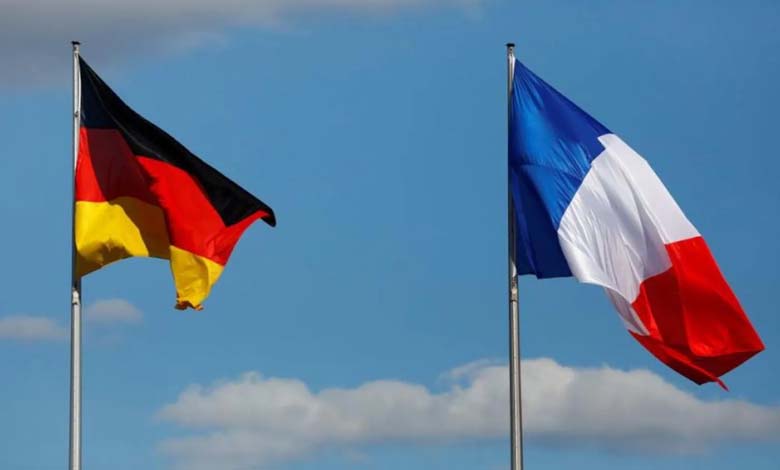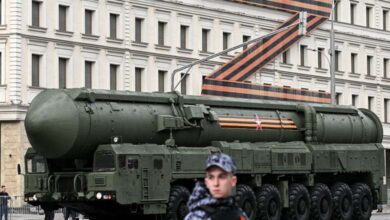Berlin Rebuilds Its Army: Historical Precedents Worry France, While Poland Supports

Paris and Warsaw are facing a major political shift as Berlin embarks on a systematic rearmament campaign, reclaiming its position as Europe’s leading military power.
For decades, the European Union operated on an unspoken understanding: Germany managed finances, while France led in military affairs. That balance has now shifted. The political center of gravity within the EU is moving, with Germany seeking to become the continent’s dominant military force.
-
The Muslim Brotherhood in the UK: Ideological Expansion and a Failure to Confront It
-
After the Muslim Brotherhood’s branch ban: mapping terrorist and extremist organizations in Berlin
Christoph Schmid, a member of the German Bundestag’s Defense Committee, stated: “Wherever you go—from the Baltics to Asia—people are asking Germany to take on more responsibility. Expectations are that Germany will finally match its economic weight with military strength.”
Germany, now fielding Europe’s largest army equipped with modern tanks, missiles, and aircraft, bears little resemblance to the once-disorganized force long mocked for its low morale and outdated equipment, according to Politico.
This growing military power is tied to political and economic clout, meaning Europe will have to adapt to a more dominant Germany, the magazine noted.
-
After the Arrest of a Hamas Cell in Berlin: The Brotherhood’s Danger Infiltrates Europe
-
The FCAS crisis: a European rift threatening defense cooperation and the next-generation fighter jet
By 2029, Germany is expected to spend €153 billion annually on defense—about 3.5% of its GDP—marking its most ambitious military expansion since reunification in the early 1990s.
By comparison, France plans to reach about €80 billion by 2030, while Poland intends to spend 186 billion zlotys (€44 billion) this year—4.7% of its GDP, the highest in NATO—with ambitions to build one of Europe’s largest and best-equipped armies.
The financial realities are also shifting. With France struggling under public debt exceeding 110% of GDP and a deficit above 5%, Berlin’s borrowing capacity grants it freedom that its neighbors can only envy.
An EU official described Germany’s military transformation as a “radical” or even “seismic” shift. Another diplomat put it more bluntly: “It’s the most significant thing happening in the EU right now.”
Yet one key question circulates within EU corridors: how “European” is this new German defense policy?
-
Political Islam and the digital sphere in Europe: recruitment, expansion, and a dangerous trend
-
European Forces Under U.S. Command?
Domestic Industry First
Part of the answer lies in procurement. Berlin continues to fiercely protect its national prerogatives in defense.
Germany has resisted granting the European Commission greater authority in arms procurement, opting instead to rely on national frameworks—including a new procurement law systematically invoking Article 346 of the EU Treaty, which allows member states to bypass competition rules in favor of domestic contracts.
This approach is already taking shape.
According to internal procurement documents seen by Politico, Berlin is preparing to approve €83 billion in defense contracts through the Bundestag by the end of 2026.
This unprecedented surge covers all branches of the armed forces—from tanks and frigates to drones, satellites, and radar systems.
-
The West and Peace in Ukraine: Conditions to Bridge the Gap Between Ground Realities and Negotiations
-
An American Historical Solution for the Ukraine Crisis: The Post-War Berlin Model
However, these contracts represent only the opening stage. Germany’s broader “wish list” totals €377 billion, encompassing over 320 new weapons programs across all military domains.
Remarkably, less than 10% of the new contracts are expected to go to U.S. suppliers—a reversal from years when Berlin was among Washington’s top defense clients. Nearly all remaining funds will stay in Europe, primarily within the German defense industry.
French Unease
This shift is deeply felt in Paris, where Germany’s rearmament is viewed with both skepticism and concern.
“In France, defense is at the core of the system. The difference between Paris and Berlin is that every senior French official is, in the end, a defense official,” said one EU official.
-
France Threatens for the First Time to Impose Sanctions on Israel
-
Macron shouts in the face of “cowards”.. and Europeans seek a path “without America”
Despite President Emmanuel Macron’s efforts since 2017 to strengthen Franco-German relations, distrust toward Berlin remains entrenched in French defense circles.
A French defense official told Politico: “It’s something between vigilance and threat,” adding, “It will be difficult to work with them because they will be far too dominant.”
According to the same source, Germany’s industrial and economic might is just as concerning as its rearmament. Jokingly, he added: “They don’t need to invade Alsace and Moselle again—they can simply buy them,” referencing regions conquered by Germany during its 1940 invasion of France.
-
Historic Blows… The Stages of Germany’s Fight against the Brotherhood and Its Organizations
-
German and Turkish Brotherhood… A suspicious alliance and dangerous goals
Beyond historical unease, French and European officials question the geopolitical direction Berlin intends to take under Chancellor Friedrich Merz.
A European diplomat based in Paris told Politico: “It’s not yet clear what Merz wants to do. Germany will have to take on a broader international role, but it’s still uncertain how.”
Polish Pragmatism
Not everyone views Germany’s military resurgence as a threat. In Warsaw, it is seen as both necessary and long overdue.
Marek Magierowski, Poland’s former ambassador to Israel and the United States, stated: “Poland has become a bright example among NATO allies in terms of defense spending. Therefore, we insist that our partners follow our lead.”
-
Washington considers France’s plan to withdraw Erdoğan’s mercenaries from Libya
-
How the Far Right is Exploiting Artificial Intelligence in Germany’s Elections
Several Polish officials speaking to Politico echoed this pragmatic stance. One remarked: “The Germans are moving in the right direction. From our perspective, it could have been done earlier, but it’s good that it’s happening now.”
Still, history casts a long shadow.
Pawel Zalewski, Poland’s deputy defense minister, observed: “Looking at history, any situation where Germany combines its economic and military power always raises concerns. Today, Poland has the largest land army in Europe and will be a major player in the future. Germany’s military modernization plans must be viewed in context—all European countries are rearming.”
-
After America: Is it Time to Transform NATO into a European Organization?
-
From Brooms to Tanks: The Return of Europe’s Largest Military Power












